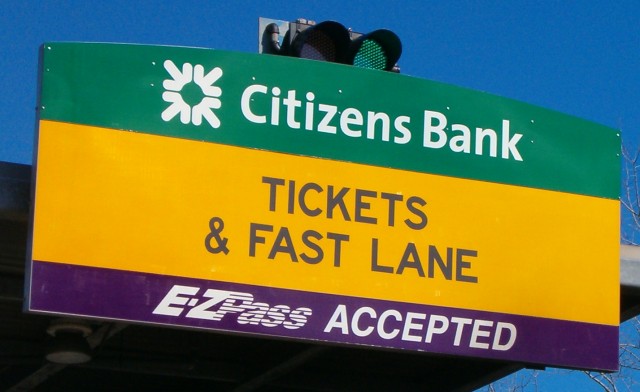Internet “fast lanes” would be banned by newly proposed legislation | Ars Technica

Congressional Democrats today introduced legislation that would require the Federal Communications Commission to ban Internet "fast lanes," paid prioritization deals in which Web services could pay for priority access to Internet users.
The "Online Competition and Consumer Choice Act" would require the commission to issue regulations that "prohibit a broadband provider from entering into an agreement with an edge provider under which the broadband provider agrees, for consideration, in transmitting network traffic over the broadband Internet access service of an end user, to give preferential treatment or priority to the traffic of such edge provider over the traffic of other edge providers."
Further Reading

What the FCC chair really means when he says he isn't legalizing paid fast lanes.
It would also prohibit Internet service providers from giving priority to their own "content, applications, services, or devices," or those offered by affiliates. The bill has an exception "to address the needs of emergency communications or law enforcement, public safety, or national security authorities." The bill only targets last-mile Internet traffic, so it would not affect paid peering agreements such as the ones Netflix signed with Comcast and Verizon.
The Democrats' bill is basically the opposite of Republican-sponsored legislation that tries to limit the FCC's authority to regulate Internet service providers.
The bill "would help prevent the creation of a two-tiered Internet system, ensuring start-ups and entrepreneurs have access to the marketplace and ensuring consumers can access all content equally," supporters said in an announcement. The bill was submitted in the House by US Rep. Doris Matsui (D-CA) and in the Senate by Sen. Patrick Leahy (D-VT). Bill co-sponsors are Sen. Al Franken (D-MN), Rep. Henry Waxman (D-CA), and Rep. Anna Eshoo (D-CA).
When asked why lawmakers didn't draft a law directly banning paid prioritization instead of directing the FCC to issue rules, a spokesperson for Matsui told Ars, "banning paid prioritization falls under the FCC’s jurisdiction. We believe they have the authority to do so, and so this legislation would direct them to use that authority to ban paid prioritization, ensuring the Internet stays free and open to all." There is no word on when Senate or House committees might take up the bill.
The bill did not say what authority the FCC should use to issue these new rules. The FCC previously tried to prevent paid prioritization deals in its 2010 Open Internet Order, but it was overturned by a federal appeals court. The court ruled that the FCC improperly imposed utility-style common carrier rules on ISPs without first classifying broadband as a telecommunications service.
Thus, the FCC could be forced to reclassify broadband providers if it was required to ban paid prioritization. The FCC's latest proposal would allow fast lanes while requiring ISPs to offer a minimum level of service for all applications, without reclassifying broadband as a utility.
There could be other complications. Even the FCC's 2010 rules contained exceptions for "specialized services," such as the VoIP phones offered by Internet providers and for "reasonable network management." AT&T has claimed that even reclassification of broadband wouldn't allow the FCC to ban all paid prioritization.
Another question is whether anti-blocking and anti-discrimination rules should apply to both fixed Internet service and cellular service. The 2010 rules and the FCC's latest proposal largely exempt mobile, but a group representing a few dozen Web companies, including Google, Netflix, Twitter, Facebook, eBay, reddit, Yahoo, Amazon, and eBay argues that net neutrality rules should apply both to home broadband and mobile, Reuters reported.